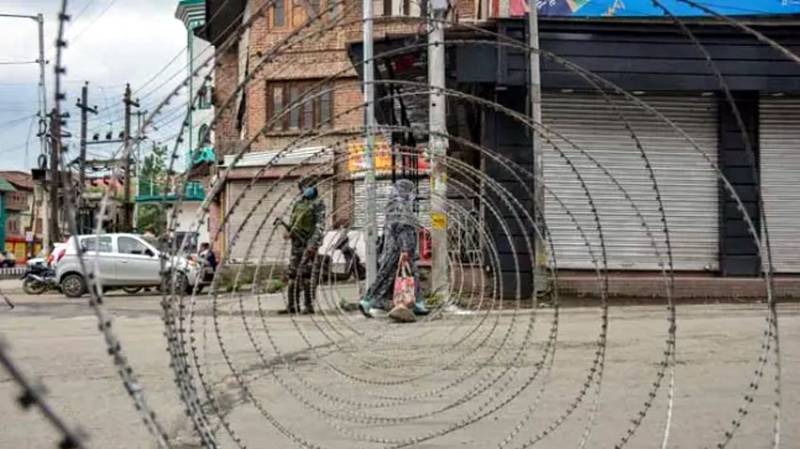US analyst castigates India for projecting false image of normalcy from Kashmir

Stay tuned with 24 News HD Android App

US analyst Michael Kugelman, the writer of Foreign Policy magazine, has castigated the Indian bid to project normalcy in Illegally-Occupied Kashmir.
He wrote that though India plans to host a G-20 meeting in Kashmir next month.
“By hosting the meeting in Srinagar, India likely aims to highlight its rich geographic diversity. It held G-20 tourism meetings in the states of Gujarat and West Bengal earlier this year and has scheduled another in the state of Goa in June. But New Delhi also probably wants to signal that Indian-administered Kashmir is stable, peaceful, and ready to engage with the world after the 2019 decision,” he observed.
However, Kugelman noted that little has changed in Kashmir.
He said in the Muslim-majority Kashmir Valley, public anger with New Delhi remains rife.
“The region remains heavily militarized, with continuing crackdowns on the right to protest and freedom of speech. One Kashmiri contact, who requested anonymity out of concern for their safety, said that India’s G-20 meeting in Srinagar is just an attempt to fake normalcy.”
He said press restrictions in Indian-administered Kashmir are especially draconian. The space for media has “drastically eroded” since 2019. Newspapers are reduced to “extensions of the government’s PR department.”
He cited a source that confirmed that Thursday marked the beginning of the trial of journalist Fahad Shah, editor of the Kashmir Walla and a previous FP contributor. Shah was arrested on terrorism charges in February 2022 for publishing what police described as “anti-national” material and faces potential life imprisonment if convicted.
“Kashmiris are also grappling with electoral uncertainty. Jammu and Kashmir hasn’t had elections since 2014. India’s Election Commission may visit the territory this month; ruling Bharatiya Janata Party leaders say they are ready for elections, but they have not provided a timetable. With six state elections between May and the end of the year, India may want to wait—perhaps until national elections, which are expected to be held by May 2024.”
He lamented that despite all this, relatively little of the world’s attention focuses on Kashmir today.
“When it does, it’s increasingly seen through a lens of opportunity. Foreign investors are coming, international flights are returning, and G-20 delegations will soon visit. UNESCO has even added Srinagar to its Creative Cities Network. In the global eye, Kashmir is seemingly returning to normalcy. And that’s exactly what New Delhi wants,” he noted.
